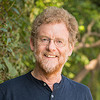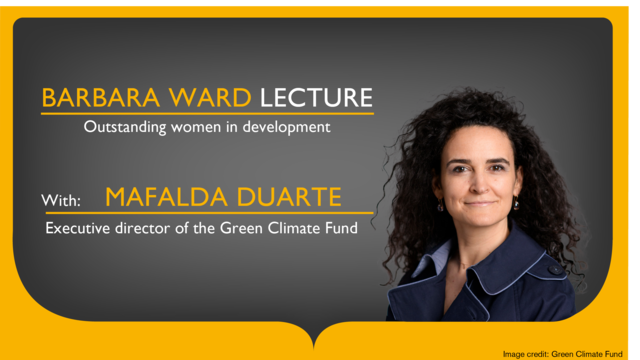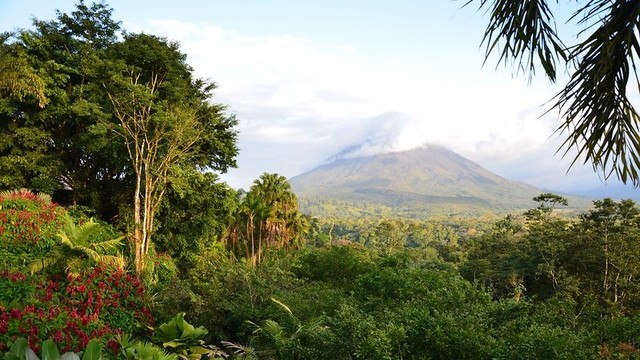A vision of our world that is sustainable, fairer and realisable: memories of Barbara Ward
For 40 years, Barbara Ward, who would have been 100 on 23 May, set out the case for a fairer, more just world system – in her 14 books, in what she wrote as a staff member and later an editor of The Economist, in many newspaper articles (especially in the Washington Post) and in her speeches.

This included her advocacy for one per cent of national income as the target for aid budgets in high-income nations. From the 1960s, to this was added a concern for "The care and maintenance of a small planet", the subtitle for Only One Earth, the book she wrote with Rene Dubos.
Certain aspects of her work set her apart from others working in this field. One was her popular appeal; many of her books were bestsellers. The Rich Nations and the Poor Nations, published in 1962, was selected by the Book of the Month club, which sent out 300,000 copies. A review in the New York Times noted: "We would be a good deal more certain [of the future] if Americans would stop feeling overwhelmed by the world long enough to read this wise and inspiring book".
Another was how grounded her writings were in what they proposed. Time magazine ranked her as one of the great visionaries of the 20th century, but her proposals were also realisable. In all her books, there was such depth in understanding the politics of development and of history, in how we got to where we are now. And in how and what we must change.
In her book The Home of Man, published in 1976, a chapter on “The Cost of Justice” sets out goals that pre-figure the Millennium Development Goals – for food and nutrition, rural and urban water and sanitation, and health programmes. This includes the investments needed to realise universal provision over 10 years. This book also documented the growth of informal cities and settlements and how they can be dramatically improved by working with their inhabitants. In Only One Earth, published in 1972, she writes of the need "...clearly to define what should be done to maintain the earth as a place suitable for human life not only now, but also for future generations.
The birth of IIED
The International Institute for Environment and Development (IIED) was her way of institutionalising her key concerns, as she was diagnosed with cancer and struggled with poor health for the last 10 years of her life.
Barbara attracted many people to IIED who shared her vision and sought to help realise it, such as Dave Runnalls, who built the institute and worked with Barbara to identify where work was most needed. Gerry Leach transformed our understanding of what was possible for a prosperous yet low-energy (low carbon) future. Jorge Hardoy founded IIED's Human Settlements Group and, after designing a research model that continues today (based on strong collaboration with institutions in the global south), returned to Argentina to set up our sister institution IIED-America Latina. Anil Agarwal spent two years at IIED helping to develop the newly formed media information unit before returning to India to found the Centre for Science and Environment.
She had other very special characteristics. One of the truly great public speakers, she could hold an audience without any visual aids – with a breathtaking narrative and inspiring proposals, but always leavened with humour. There were often quotes from Jane Austen or Shakespeare (or the Bible, Karl Marx or a 4,000-year-old song from Sumeria). Barbara also had a wonderful sense of curiosity, surely one of the defining characteristics of a good researcher but unusual in someone so eminent.
Presidents, popes and prime ministers
Barbara knew and used the power of the media with great skill. She also knew the power of friendships and of networks – as Dave Runnalls illustrates so well in a recent video interview. She numbered among her friends and correspondents presidents, popes and prime ministers, plus the heads of the World Bank, UN agencies and bilateral aid programmes. For many of these, she wrote briefs or even speeches, but never claimed credit for doing so.
She also wrote so beautifully. With erudition but text that remained readable. Indeed, sometimes her subtlety defeated her audience. After presenting the manuscript for her book Progress for a Small Planet to the UN agency that had supported it, we received a telegram demanding that the racist comment on page xx be removed. We rushed to look at the offending page and could see no evidence for this. But when highlighting innovation, the text referred to the ‘not entirely unastute Japanese’, and what was actually a wonderful compliment had been misread as racism.
The global stage
There were also some less public aspects of her life that should be highlighted. She was the best of company with her warmth, wit and wonderful, self-deprecating sense of humour. She gave me my first proper job, and it never occurred to her to do anything but treat me as an equal – quite an experience for a young and ignorant researcher.
My work with Barbara began as a three-month job to help organise her library. Now, 40 years later, I am still at IIED and still working to try to realise her visions. I had never intended to work in this field; I took the three-month role to earn some money before starting a Masters in theatre management. But captivated by Barbara and by the work, I stayed, later to train as a development planner.
I was also buoyed by her wonderful response to a question once put to her: how could she work on issues for which there was so little evidence of progress? She replied: "It is our duty to hope."
More on Barbara Ward: www.iied.org/BarbaraWard
David Satterthwaite (David.Satterthwaite@iied.org) is a senior fellow at IIED and visiting professor at University College London. He was Barbara Ward's research assistant for her final two books – The Home of Man (1976) and Progress for a Small Planet (1979).



